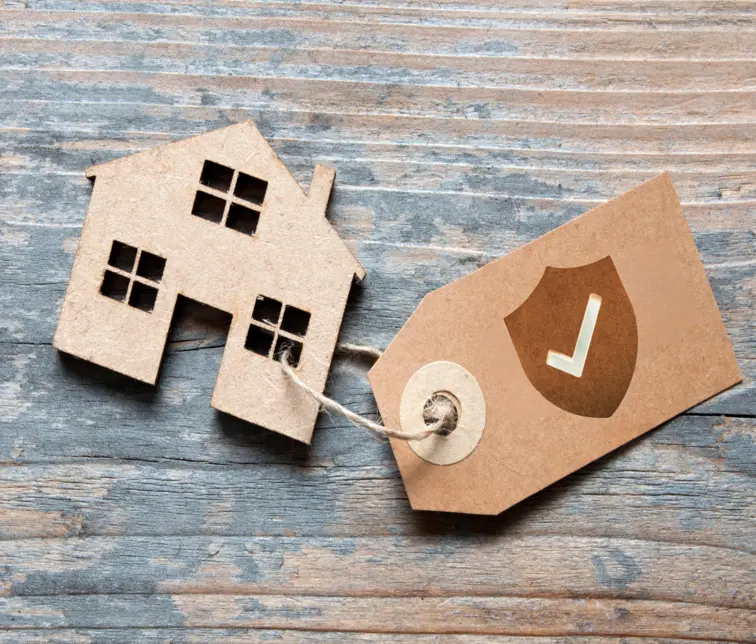Owning a holiday home is an exciting venture, offering both a personal retreat and the opportunity to generate income through short-term rentals. However, ensuring that your investment is properly protected requires more than just a standard home insurance policy. Holiday homes come with unique risks and understanding what’s covered—and what’s not—can help you avoid costly surprises down the road.
At Kahuana, we’ve seen firsthand how unexpected situations can arise, from storm damage to accidental guest mishaps. Without the right coverage, these incidents can quickly turn into financial burdens. A well-structured insurance policy tailored to holiday rentals ensures peace of mind and protects your property, guests, and income.
Let’s break down the essentials of holiday home insurance, so you can be confident your property is safeguarded.
What’s Typically Covered?
A comprehensive holiday home insurance policy should offer protection against common risks that can affect both personal and rental properties. While policies vary, most include coverage for:
1. Buildings and Contents Insurance

This covers the physical structure of your property and everything inside it, from furniture to appliances. Damage caused by fire, storms, floods, and vandalism is typically included, but always check the specifics of your policy to ensure adequate protection.
2. Public Liability Insurance
If a guest is injured on your property—whether from a slip-on wet tiles or a faulty handrail—you could be held responsible. Public liability insurance helps cover legal fees and compensation claims, offering crucial protection for holiday homeowners. Unlike short-term letting insurance, public liability insurance is mandatory for holiday letting owners in NSW under the NSW Code of Conduct.
3. Loss of Rental Income
If your property becomes uninhabitable due to an insured event (such as fire or flood), many policies will compensate for lost rental income while repairs are underway. This can be essential for owners who rely on their holiday home as a source of revenue.
4. Accidental Damage by Guests

Accidents can happen. Many holiday home policies cover accidental damage to furniture, flooring, and fixtures, ensuring you don’t have to foot the bill for unexpected mishaps.
5. Theft and Malicious Damage
Whether your holiday home is occupied or vacant, it can be a target for burglary or intentional damage. Insurance can cover stolen items and repairs, helping you recover quickly from these incidents.
What’s Usually Not Covered?
Even with a solid policy in place, there are some exclusions and limitations that homeowners should be aware of. Understanding what’s not covered can help prevent surprises when making a claim.
1. General Wear and Tear

Insurance is designed to cover sudden and unexpected damage, not gradual deterioration. Routine maintenance and upkeep, such as repainting walls or replacing worn-out appliances, fall under the owner’s responsibility.
2. Unoccupied Property Exclusions
If your holiday home is vacant for an extended period, some policies may limit or exclude coverage for theft, vandalism, or burst pipes. Many insurers require security measures, such as regular check-ins or monitored alarms, to maintain full coverage. At Kahuana, we not only install security monitoring devices on all homes under our management at our agency’s cost, but we also conduct security checks on properties before, after, and in between guest bookings.
3. Damage Caused by Guests’ Pets
While some holiday rentals welcome furry companions, not all insurance policies cover damage caused by pets. Scratched floors, chewed furniture, and other pet-related issues may require additional coverage or a pet damage deposit from guests. At Kahuana, we take extra care to protect our properties by requiring a refundable security deposit for all homes under our management. For guests bringing pets, a simple pet registration process ensures they are suitable for the stay before approval is granted.
4. Intentional Damage by Guests
Accidental damage is typically covered, but deliberate destruction—such as a party gone wrong—may not be. Guest screening and clear rental agreements can help mitigate this risk, but additional coverage may be necessary for peace of mind. At Kahuana, we take a proactive approach to protecting our properties—regardless of the booking source, all guests undergo a thorough vetting and verification process. In addition to a refundable security deposit, guests are required to sign a short-term rental agreement, ensuring clear expectations and accountability.
5. Certain Natural Disasters
While storm and flood damage is often included, some natural disasters—such as landslides or coastal erosion—might not be covered under a standard policy. If your holiday home is in a high-risk area, check whether you need specialised coverage.
6. Short-Term Rental Exclusions
Standard home and contents policies often exclude coverage for short-term rentals, potentially leaving property owners vulnerable to risks such as guest-caused damage, theft, or liability for injuries on the property. It’s crucial to ensure your policy is specifically designed for holiday rentals to avoid gaps in coverage.
Choosing the Right Insurance for Your Holiday Home
Not all insurance policies are created equal and selecting the right one depends on how you use your holiday home. Here are some key factors to consider when choosing coverage:
- Frequency of Rentals: If your property is rented out frequently, a standard homeowner’s policy won’t suffice. Look for a holiday home-specific policy designed for short-term lets.
- Location Risks: Coastal properties may need additional storm surge coverage, while rural homes could require protection against wildlife damage or bushfires.
- Guest-Related Coverage: Ensure your policy includes liability protection and accidental damage caused by guests, as these are common concerns for rental properties.
- Loss of Income Protection: If your rental income is essential, make sure your policy includes compensation for lost earnings due to repairs or damage.
Final Thoughts

Insurance may not be the most exciting aspect of owning a holiday home, but it’s one of the most important. The right policy not only protects your investment but also provides security and confidence, allowing you to focus on creating a memorable experience for your guests. By understanding what’s covered—and what’s not—you can ensure your holiday home remains a stress-free and profitable asset for years to come.
If navigating the many insurance options feels overwhelming, don’t worry—we’re here to help! While we don’t endorse any particular insurer, nor do they endorse us, we’ve compiled a comprehensive A-to-Z list of providers that have worked well for Kahuana homeowners in the past. All our clients receive this resource, making it easier to find a policy that suits their needs with confidence.




